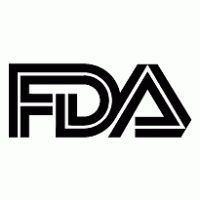FDA Approves RBX2660, First Live Microbiota Treatment for Recurrent CDI
The product is administered as a single dose and is manufactured using the stool of qualified donors.

The US Food and Drug Administration (FDA) has approved RBX2660 (Rebyota) the first-ever live microbiota therapeutic for the prevention of recurrent Clostridioides difficile infections (rCDI) for adult patients who completed antibiotic treatment for recurrent CDI.
The treatment, developed by Ferring Pharmacueticals, is prepared from stool donated by qualified individuals and administered rectally as a single dose. RBX2660 is a standardized, stabilized, investigational microbiota-based live therapeutic.
The approval is based on the results of a pair of randomized, double-blind, placebo-controlled trials, as well as an open-label trial involving patients with a history of 1 or more recurrences of CDI.
Each patient was treated with 1 or more doses of RBX2660 or placebo for 24-72 hours after the completion of antibiotic treatment for CDI.
The overall estimated rate of success in preventing recurrent CDI through 8 weeks was significantly higher in patients treated with RBX2660 (70.6%) than in the placebo group (57.5%).
For safety, in 1 study, 180 patients treated with RBX2660 suffered from adverse event, compared to 87 in the placebo group. The most common side effect was abdominal pain, diarrhea, abdominal bloating, gas, and nausea.
Recently, investigators published positive data on RBX2660 in the Drugs from the PUNCH CD3 trial.
The results show an original Bayesian analysis model estimation of treatment success of 70.4% at 8 weeks in the RBX2660 cohort, compared to 58.1% for the placebo group. There was a 99.1% posterior probability that RBX2660 was superior to placebo in reducing rCDI following standard-of-care antibiotic treatment.
However, the investigators then aligned the data to improve the exchangeability and interpretability of the Bayesian analysis and found the model-estimated treatment success rate for the treatment group was 70.6% compared to 57.5% for the placebo group.
There was a 99.1% posterior probability that RBX2660 was superior to placebo in reducing rCDI following standard-of-care antibiotic treatment and there was an estimated treatment effect of 13.1%.
The numbers were even more impressive at 6 months, where more than 90% of participants who achieved treatment success remained free of rCDI.
"Today's approval of Rebyota is an advance in caring for patients who have recurrent C. difficile infection," said Peter Marks, MD, PhD, director of the FDA's Center for Biologics Evaluation and Research, in a statement. "Recurrent CDI impacts an individual's quality of life and can also potentially be life-threatening. As the first FDA-approved fecal microbiota product, today's action represents an important milestone, as it provides an additional approved option to prevent recurrent CDI."